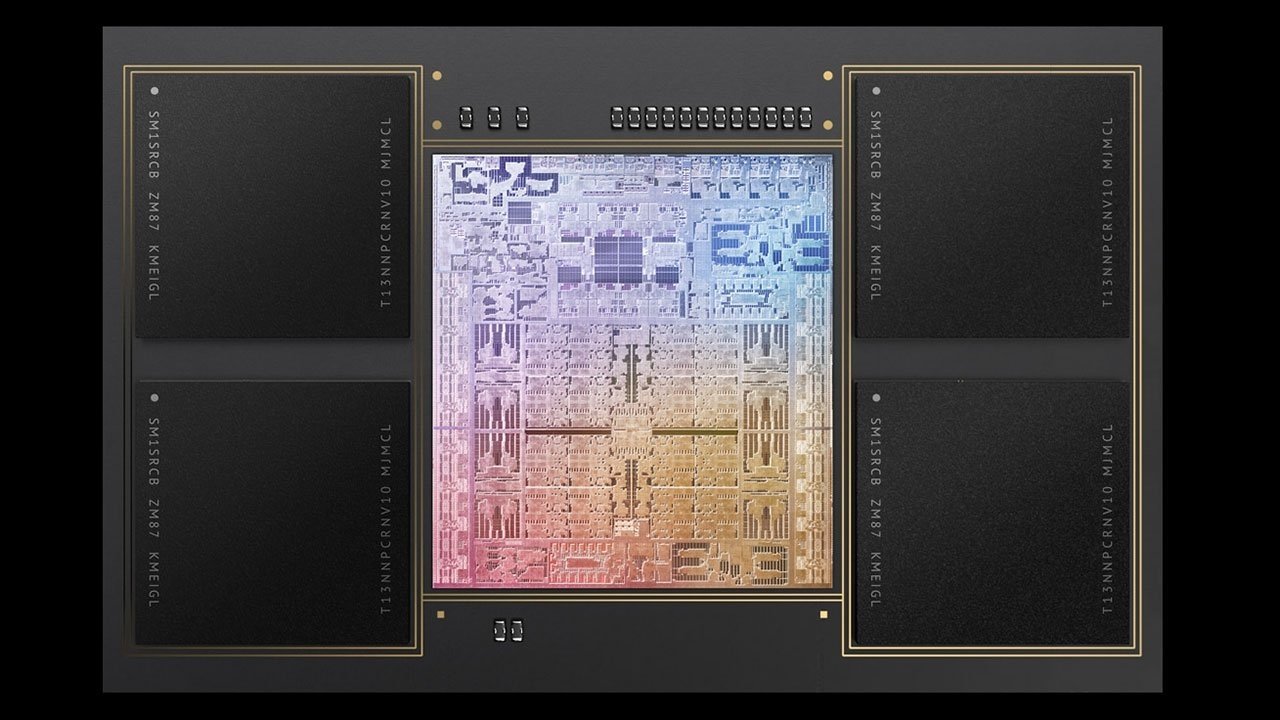Apple reportedly intends to release updates to its Mac and iPad Pro Apple Silicon chips every 18 months, but it isn't clear why this isn't happening at the same speed as Apple's A-series processors.
Apple is in the middle of its two-year schedule to move its Mac lineup away from Intel processors to Apple Silicon. So far, it has brought out three chips under its M1 masthead, including the M1 Pro and M1 Max in its newest MacBook Pro updates, but more are certainly on the way.
In a report from Taiwan's Commercial Times, supply chain sources claim Apple is aiming for an update to its Apple Silicon range every 18 months. This is in stark contrast to the A-series chips, which get a generational jump each fall as part of annual changes to the iPhone.
The report says the "M2" lineup will start off In the first half of 2022, with a chip codenamed "Staten." The "M2 Pro" and "M2 Max" versions will apparently arrive as part of an M2X architecture codenamed "Rhodes" in the first half of 2023.
M2 will allegedly be produced using a 4-nanometer process, which is also allegedly rumored to be used in the "A16" in the 2022 "iPhone 14."
The following "M3" series would arrive 18 months after the M2, it is reckoned, and will apparently employ TSMC's 3-nanometer process.
A leaked roadmap from November detailed the next generation of Apple Silicon processors as having the codenames "Ibiza," "Lobos," and "Palma." Thought to be separate from Rhodes, the chips are said to each contain two dies, produced using a 5-nanometer process.
While "Ibiza" is anticipated to be the low-power version to be used in a MacBook Air and iPad, "Lobos" and "Palma" are expected to be used in the MacBook Pro and other Mac desktops.
 Malcolm Owen
Malcolm Owen








 Charles Martin
Charles Martin


 William Gallagher
William Gallagher

 Christine McKee
Christine McKee
 Wesley Hilliard
Wesley Hilliard









21 Comments
This is longer than the intel cycle, albeit the Apple silicon processors are better though.
Longer cycle, bigger performance jumps per cycle? That's what I would be expecting.
People are more likely to refresh their phone every year than an iPad or Mac - so this makes sense to me.
To over-use a saying; Comparing Apple's Silicon release cycles to Intel's Release schedule is an 'Apple vs Oranges' comparison....but you can still compare them - Dave Burd...Scanning through the wiki articles about Intel processors...Intel has had many years of 12 month cycles, and an 18 month cycle recently, but the new generation processors offered very incremental improvements in terms of specs. Intel has also been stuck at 14nm for 6 years! If Apple can launch one node improvement (thank you TSMC) and incremental feature or spec bump in 18 months it would be, in my opinion, an improvement over Intel....though I don't expect the CPU alone to drive upgrades for me, personally. In my opinion it took 3 to 4 intel cycles (3 to 5 years) before the node seemed to make an appreciable difference in performance that I would consider 'worth' upgrading to get the new CPU.
Farewell, 14nm: Intel Launches Alder Lake - ExtremeTech
(edit: Grammar)
M3 will be expected to compete against 14th-gen Intel and Zen 4 (and maybe Nuvia). It takes time to stand out from the competition, but I suspect the progress will be faster by then.
For now, the M1 Pro/Max with 2-die will do, with M2 improving on power efficiency so you'll see less throttle. I still want to see a 2-die configuration on the 16" MacBook Pro, seeing much cooling headroom suggesting it.